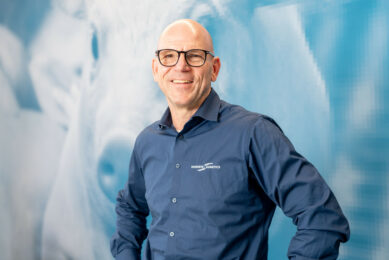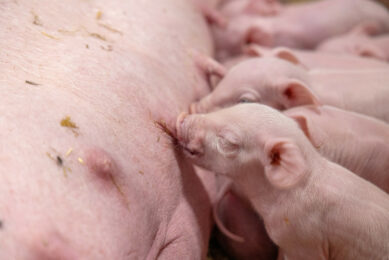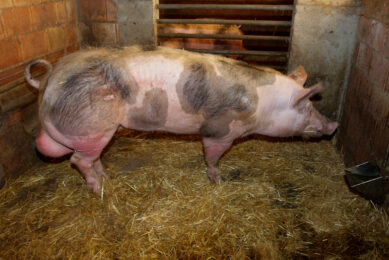Piglet castration may be avoided by gene editing

The long road to avoid castration appears to have got another turn. 2 US companies have teamed up to jointly cooperate on a breeding plan to have male piglets born castrated.
According to the companies, the new ‘precision breeding technique’ will take care of male piglets remaining in a phase of pre-puberty, causing the need for surgical castration to disappear.
Gene editing technology in pig production
Recombinetics, headquartered in St Paul, MN, is one of the companies connected to the plan. Key of the company is gene editing technology, i.e. the cutting of DNA causing elements to disappear or being repaired. This is a process which essentially can also occur in nature, which makes the technique an acceleration of existing breeding techniques – and not a complete change. The other party involved in the deal is DNA Genetics, a genetics company from Columbus, NB.
The essential next step now is to figure out whether there are commercial opportunities for this approach, e.g. by evaluating findings on feed efficiency or meat quality. The research is being led by Dr Tad Sonstegard, chief scientific officer at Acceligen, the agriculture division within Recombinetics.
Breeding swine while eliminating the need for castration
The research is related to a grant of US$ 500,000 which Recombinetics received mid-December 2017. It was donated by the Foundation for Food and Agriculture Research (FFAR). This is a grant to use new techniques to breed swine that will eliminate the need for surgical castration. Additional funding is provided by The Open Philanthropy Project.
Recombinetics has been working on gene-editing for years. In April 2015, it made headlines by producing naturally hornless cattle.











